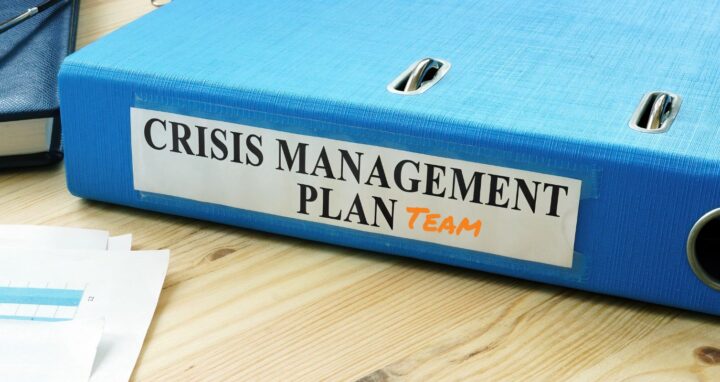When a crisis strikes, there are two important things: Preparation and Communication. Those elements will help drive the course that a crisis takes.
The effectiveness of your crisis response largely depends on how well-prepared you are before a crisis happens. This means having a solid crisis management plan in place. That planning includes identifying potential risks, establishing clear communication channels, training your team, and reviewing various scenarios. With this preparation, you should be able to respond swiftly and confidently to minimize damage and maintain control over the situation.
Next, how you communicate during a crisis can make or break your organization’s reputation. Clear, transparent, and timely communication is essential to managing public perception and maintaining trust with stakeholders. Consistent messaging across all platforms is vital to avoid confusion and misinformation.
Prepare
Creating a plan for crisis communications is like building a safety net before you even know you’ll need it. Imagine you’re on a ship and suddenly a storm hits. You wouldn’t want to be figuring out emergency features as the next big wave rolls toward you.
In the world of crisis communications, preparation is about anticipating potential problems before they arise and creating a plan to help you respond. This means identifying potential areas of risk and being able to identify who to contact in the event of a crisis occurring. It’s not just about drafting a statement but also training your team, setting up communication channels, and ensuring everyone knows their role.
Preparation also involves monitoring the environment—staying aware of what’s being said about your brand, industry, or key issues. This vigilance allows you to spot potential crises early and respond more effectively.
Ultimately, preparation is about being proactive, not reactive. It’s about maintaining control over your message and protecting your brand’s reputation. A well-prepared team can act swiftly, confidently, and with a clear strategy, turning a potential disaster into an opportunity to demonstrate leadership and integrity.
Our Worldcom Partners have written insightful posts about preparing your team and some of the tools that can help you get ready.
- 10 Steps to Creating an Effective Crisis PR Routine
- Who’s In Charge? Building Your Crisis Management Team And Planning For A Response
- Effective Crisis Communications Is Vital In A Cybersecurity Incident
- Ezt a négy válsághelyzetet kerüld el 2024-ben (Avoid these 4 crisis situations in 2024)
- Mitigation vs. Crisis Management vs. Reputation Management
- Who’s In Charge? Building Your Crisis Management Team And Planning For A Response
- Why companies need to be prepared for a cyber-security crises now more than ever
- Good Crisis Communication Starts with Good Communication
Protect with Communication
When a crisis hits, you need to work to safeguard your brand’s reputation and maintaining trust with your audience during turbulent times. The immediate goal is to protect your organization from the potential fallout that could damage your credibility or relationships. Protection begins with clear, honest communication. It’s essential to provide accurate information quickly, addressing the issue head-on rather than allowing rumors or misinformation to fill the void.
Another key aspect of protection is managing the narrative. By controlling the message, you can shape public perception and steer the conversation in a way that minimizes harm. Ultimately, the goal is to protect not just your organization’s image but also its long-term relationships with customers, employees, and the public, ensuring that your brand emerges from the crisis with its reputation intact.
Our Partners have shared great insights on the ways to deal with a crisis to protect your brand and your business.
- 4 Keys to Communicating During a Crisis
- Crisis: Respond in 45 minutes or less, or reap the consequences
- Minimize the Damage from Information Leaks
- The Art of the Corporate Apology Video
- Why Transparency is Your Crisis Communications Lifeline
Examples and Trends
There many examples of what happened during a crisis. It is sometimes the best way to understand what could happen and help you prepare. Our partners work on the front lines with many companies to help them prepare and protect. We have some great examples and trends that they have shared.
- 3 Trends changing the management of crisis communications
- Crisis Management Lessons From ‘It Ends With Us’ Press Tour with Blake Lively
- Crisis e innovación (Crisis and Innovation)
- Egy krízis anatómiája (Anatomy of a crisis)
- Lessons From Silicon Valley Bank – A Crisis Of Communications
- Prepare for Crisis Collateral Damage
- V pořadí dvaadvacátý PR Brunch se věnoval krizové komunikaci. (PR Brunch dedicated to crisis communication)
- Winners And Losers: Scoring The 21st Century’s Most Infamous PR Crises




